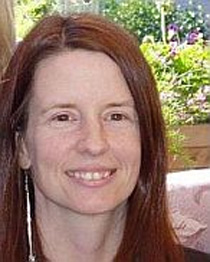Pages: 1 2
The waitress looked down and began to fiddle with the hem of her shirt.
“He’s a little bit strange though. He has a deep voice, but when he’s possessed by the spirit and telling fortunes, he speaks in a woman’s voice.â€
“If you want a good fortune-tellerâ€, said Linh, “there’s a man on the east side of the citadel who reads the I Ching. He’s amazing. You walk into his house, he just calculates something and he comes up with a prediction. Some fortune-tellers insist you make ceremonial offerings, but he doesn’t. I don’t like it when they want you to leave stuff at their altars. I think they just want the free fruit and things.â€
“I didn’t know you have to make offerings sometimes. You know so much about it; maybe you should become a fortune-teller,†I said to Linh.
“Oh no Teacher, I’d be too scared.†She shook her head. “What if a spirit possessed me?
“You’re scared? I thought you went to fortune-tellers mostly for fun.â€
Linh nodded. “It’s both. I think most of them aren’t real, but they’re entertaining. Some are real, and they’re very accurate, but then they lose their ability. After that, they lose their customers too. But the I Ching guy, he’s a really high level thầy bói.â€
I told her I thought most fortune-tellers just try to read their customers, watching how they react to what they hear, to gauge whether the guesses are going in the right direction. It gives the fortune-teller an idea of what to say next.
“Oh, you’re right about thatâ€, she said, “in fact, we call that ‘phÆ°á»›c chủ may thầy’, which means that if the customer’s happy, it’s good for the fortune-teller. If the customer’s lucky, he’ll think it’s due to the bói’s predictions. If customer and fortune-teller suit each other, the fortunes will be accurate. In fact, when I go to see one, I find I can often predict what he’s going to say next.â€
Just then, Hiá»n entered the coffee shop. She and Linh are friends, and she also met with me regularly to practice her English. While Linh is bursting with self-confidence, Hiá»n is shy and I have trouble hearing her when she speaks.
“Hiá»n’s almost thirty-two and still doesn’t have a boyfriend. You know, last year a soothsayer told her she’s too yin, too surrounded by negative energy. The woman told her it’s because the man she’s destined to marry is already dead. His spirit loves her. She has to make offerings to beg him to let her go, to change her destiny.â€
Hiá»n shook her head.
“That woman just read my hand and read the cards. I don’t think she was right. I wanted to see the woman who tells fortunes near where we eat bánh bèo all the time, but she’s about to have her baby She won’t be seeing any customers for a while.â€
“Heavens! Don’t visit herâ€, Linh said, “she used to be good, but she isn’t anymore.â€
“Anyway,†said Hiá»n, “I can’t find a boyfriend because of my bad skin. That’s what causes my bad luck. That woman could see that right away. She didn’t need to read the cards to know. Anyone can see.â€
“I wouldn’t take chances. You better just make the offerings and pray.â€
The owner of the café slipped in through a side door. The waitress whispered to her, and then she came to our table, flashing a wide grin at Linh and Hiá»n. Linh told me the woman was gifted at telling fortunes. I wondered if I was being set up, but the woman just chatted briefly with Hiá»n, then got up to serve some newcomers. Hiá»n said she didn’t think the woman told fortunes, but rather just made them up.
“Oh, but she’s good!†said Linh. “I find she’s usually right, but she gets a weird look in her eyes when she’s doing it. I don’t like it. It’s kind of scary. I think it’s the spirit, taking over.â€
Returning, the woman asked Hiá»n if she wanted her fortune retold. Hiá»n blushed and mumbled that she was too tired.
Linh spoke up:
“You could read my English teacher’s palm.â€
I don’t believe in fortune-telling, but the woman turned to me with a broad smile.
“I do free,†she said in English, “No money. Only free.†Linh explained that the woman never accepted payment, because she took her soothsaying abilities seriously and felt that taking money would detract from her predictions.
The woman knew nothing about me. She took my hand and studied the palm, her brow creased with concentration. Finally she looked up. I could see what Linh meant; her face was an expressionless mask, eyes focused somewhere far away. I thought it was a good act. Then she told me things about my past and my family that I had never told anyone in Việt Nam. I wondered how she had guessed. She mentioned a specific relative, asking why I hadn’t spoken with that person in such a long time. She gazed at my forehead and said she could see I had worked in several different professions. There was more, along similar lines. How did she guess these things?
She made many predictions, mostly things anyone could have made an educated guess at, armed with the knowledge that I was an expat living in Việt Nam. It was the few statements she made about things no-one could have known that gave me pause. I was careful not to react to anything she said, but after her initial distance, she began to watch me closely, searching my face as she spoke.
After what seemed like a very long time, she stopped speaking, tucked a wayward lock of hair into her ponytail, and stood up. It was only now that I noticed how tiny she was. Her eyes had been almost level with mine, and as she stood, her height barely changed. Without a word, she drifted to the front of the café, skirts swishing around her calves, and sat down in an armchair, staring off into space until new customers arrived.
“See? Isn’t she amazing? I told you she’s good.†said Linh. “Wasn’t she right about everything?†I didn’t know what to say. I was loath to tell her the woman had been right about a number of things. I really didn’t want to start believing in fortune-telling.
Hiá»n pushed her long hair from her face and in her soft voice, said that the woman had obviously been wrong.
“Can’t you see, Teacher didn’t say a word the whole time. If the fortune-teller was right, Teacher would be excited.â€
I didn’t disagree, but let them argue it out between themselves.
“Now that you see how it works, I’m going to bring you to another bói next week†said Linh. “One who can read your facial structure. He looks at the twelve areas of your head. Each one relates to a different aspect of your life; family, wealth, health and so on. And there’s a new one near the citadel who reads the future with software.â€
I thought about my brother-in-law and his fiancée. When they planned their wedding, the bói assigned them a date that was almost a year later. A month before the ceremony, the fiancée’s grandfather grew ill. This became the single topic of conversation among friends and family for two weeks, at which point the grandfather died, and the wedding had to be postponed for six months. Then the grandmother took ill and died too, postponing the wedding a second time. Again, they consulted the bói. When the wedding finally took place, it was almost two years later than originally planned, and had required three trips to the fortune-teller.
I mentioned all this to Linh, and told her I thought my mother-in-law, with her market-woman’s salary, could have better spent her money elsewhere.
“Oh, she was right to consult before their wedding. And yours too. If she hadn’t, you might have married on the wrong day. You’d have an unlucky marriage. And what if your brother-in-law chose to marry on a day too close to the funeral? That’d be a disaster. You should come with me. Let’s go to the man on Lê Duân Street who reads the I Ching. He’s the best. Then you’ll change your mind.â€
I declined her offer, and we didn’t discuss it again for a long time. Then I returned to Canada. The last time we chatted, Linh told me she was making a list of several new fortune- tellers that I should consult.
I began to reconsider. To really know a culture, you have to see it from the inside. Friends and family members in Việt Nam so often tell me about how they consulted this or that fortune-teller, and since I’ve no personal experience (other than the woman at the café), I can only try to imagine the details. For the sake of research I should go, I told myself, especially if he would allow me to take a few photographs.
Besides, I was curious to see if any others would be able to do what the coffee-shop owner had done. On the other hand, I didn’t want any more reason to rethink my stance on fortune-tellers. I didn’t want to start believing. Granted, the woman at the café had been eerily accurate with information she couldn’t have known. But what good is information about what’s already happened? As for the future, I’m not so sure that it’s set in stone.
The next time I’m in Huế, I’ll take Linh up on her offer to visit the I Ching specialist. Not so much to hear about what lies in my future, but out of curiosity, and to experience firsthand something that is such a widespread practice in Việt Nam. In any case, the bói my mother-in-law consulted must have chosen the right date and time for my husband and I to marry; we’ve had no disasters so far.
Pages: 1 2





what a fascinating meeting… enough to leave one intrigued & wondering. also fascinating what a universal appeal the fortune-teller has for people everywhere, across time and place.
[…] Linh and the Fortune Tellers – now published in issue 11 of the Maple Tree Literary Supplement. […]
Glad to hear you have had no disasters in the marriage and I hope it will stay that way!
 Let us know how it goes if you decide to see another fortune teller the next time you are in Vietnam.
Let us know how it goes if you decide to see another fortune teller the next time you are in Vietnam. 

What a fascinating and fun and sympathetic tale from your encounters with Vietnamese culture and daily life.
The people who told fortunes in leaves and software sounds very interesting.
“But what good is information about what’s already happened?”
That is so true!